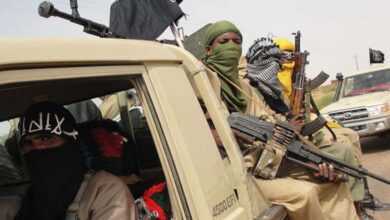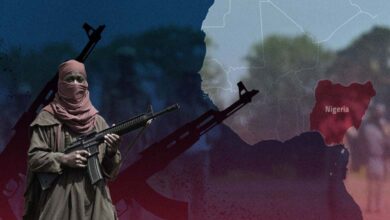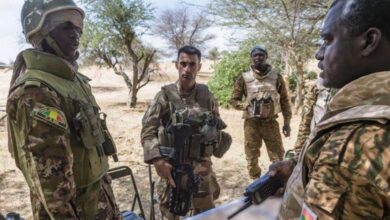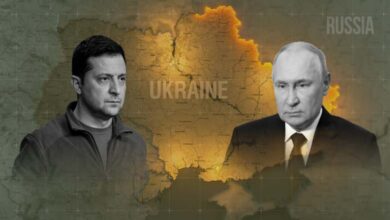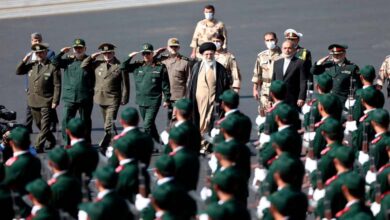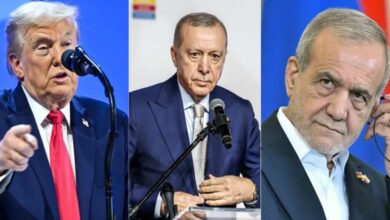Evidence presented to the UN proves Polisario’s recruitment of mercenaries in conflict zones
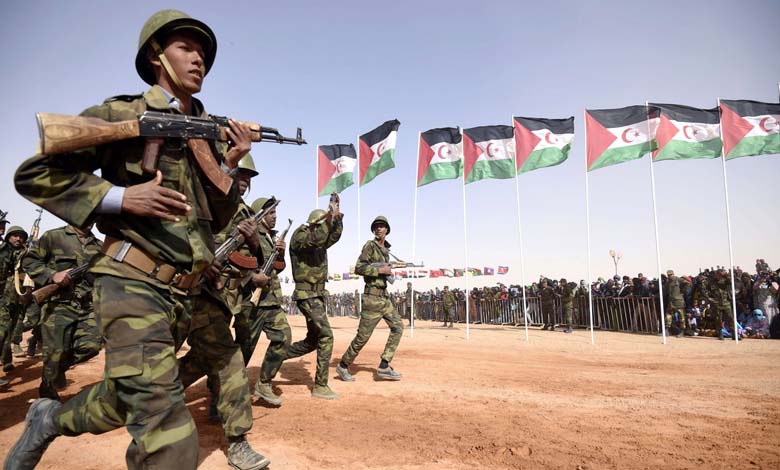
Organizations have submitted data confirming the Polisario Front’s involvement in forced recruitment of youths and children, urging the launch of an international investigation.
Human rights groups disclosed before the UN Human Rights Council, during its 60th session in Geneva, that the Polisario has been actively recruiting residents of the Tindouf camps as mercenaries in conflict zones, notably in the African Sahel. These revelations come amid growing calls to designate the separatist movement as a “terrorist organization,” given its threat to regional stability.
-
A Test of Sovereignty: Iran’s Support for the Polisario Reveals the True Nature of Tehran’s Maghreb Policy
-
Dissident Movement Calls for Dialogue to End Polisario’s Monopoly on Representing the Sahrawis
According to the Moroccan outlet Le Journal, Zine El Abidine El Ouali, representative of the African Network for Development, Governance and Human Rights, testified that the Polisario had sent young Sahrawis to Libya to support Muammar Gaddafi’s regime after the outbreak of the Libyan revolution.
These fighters, turned mercenaries, reportedly committed serious human rights abuses. Following Gaddafi’s fall, they were redeployed across the Sahel, where they engaged in massacres and kidnappings targeting UN peacekeepers.
-
Kenya’s stance on Moroccan Sahara dismantles Polisario’s support belts
-
A U.S. Bill Will Soon Designate the Polisario as a Terrorist Organization
Such revelations pave the way for potential international investigations into the Polisario’s activities, which could result in sanctions or legal action against its leaders. They also increase pressure on the few countries still backing the separatist group to reconsider their stance, especially as reports continue to denounce its human rights violations.
El Ouali cited the case of Adnan Abu Walid al-Sahraoui, who rose to become leader of the Islamic State in the Greater Sahara. He was trained in the Tindouf camps before being dispatched to Mali, where he played a pivotal role in destabilizing the region.
-
Sécurité Collapse of Polisario’s Security Apparatus
-
Sahrawis for Peace Movement: A Third Way Gains Strength as an Alternative to the Polisario
The NGOs urged the UN to launch an independent investigation into these practices, establish protective measures for refugees against forced recruitment, and call on Algeria, as host country of the Tindouf camps, to uphold its international obligations and safeguard the fundamental rights of the camp populations.
Additional evidence was presented by the Italian organization Il Cenacolo, which confirmed the Polisario’s involvement in forced recruitment of youths and children turned into mercenaries. The group highlighted U.S. reports indicating that around 200 fighters recruited by the Polisario had been arrested by Syrian authorities.
-
Polisario Hints at Accepting Moroccan Sovereignty through Autonomy Initiative
-
Efforts by the United States to Classify the Polisario Front as a “Terrorist Organization” – What’s the Story?
These practices were described as a “blatant violation” of international law, with Algeria held fully accountable as the host state. The organization urged a comprehensive international inquiry and immediate measures to end such abuses, warning of their destabilizing effects on regional peace and security.
The issue of Tindouf camps evolving into hubs for radicalization and terrorism resurfaces regularly on the international agenda, fueling mounting global and regional concern. The camps are now seen as one of the most sensitive sources of insecurity in the Sahel-Saharan belt, particularly as multiple reports and expert testimonies confirm links between the Polisario and terrorist organizations.
-
Tensions Rise in Tindouf Camps and Wave of Exodus from Polisario’s Grip
-
The Royal Momentum of the King of Morocco Leads to a New Achievement: Ghana Freezes its Recognition of the Polisario
Deteriorating living conditions, rampant unemployment, and the absence of future prospects push many disillusioned youths to join armed groups. The diversion of humanitarian aid by Polisario leaders—used as a tool of collective punishment against dissenters—further deepens the suffering and fosters an environment ripe for radicalization.
Moreover, Tindouf has emerged as a major hub for arms, drug, and human trafficking, with criminal activities extending far beyond the camps to destabilize the entire Sahel region.
-
Algeria Blocks Census of Tindouf Residents for Fear of Exposing Polisario Corruption
-
Algerian Concern Expressed by Polisario Over French Shift in Positions
The United States is reportedly considering designating the Polisario as a Foreign Terrorist Organization, following appeals stressing that the separatist movement represents a threat to U.S. security and that of its allies.
Moroccan diplomacy has succeeded in drawing international attention to the Polisario’s risks by linking the artificial Sahara conflict to broader global counterterrorism efforts. This narrative has garnered significant support, particularly from European countries and the United States, which endorse Morocco’s autonomy initiative under national sovereignty as the only viable solution to the conflict.
-
Ireland Refutes Algerian and Polisario Claims Regarding Ghali’s Visit to Dublin
-
Spanish security unveils Polisario’s ties to a human trafficking and smuggling network
-
The Atlantic Initiative Foils Polisario’s Bet on Instability Strengthening
-
Renewal of confidence in the Sánchez Government deals a blow to Polisario’s bets


